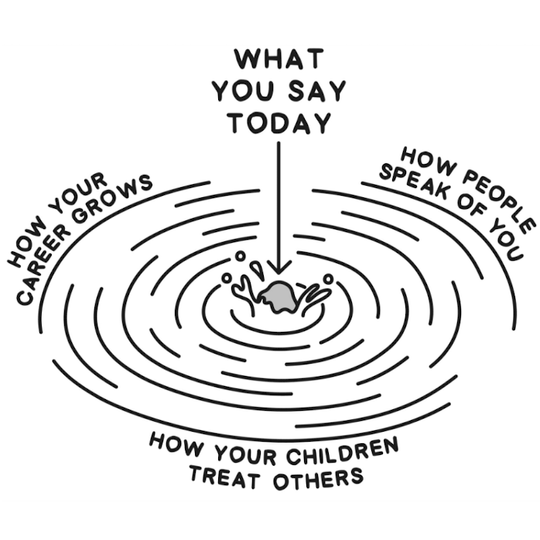
Now This Is Interesting - Your Words Matter
"What do your words say you are?"
That quote is from Jefferson Fisher, an attorney and author of The Next Conversation, which I am reading for my Book Club group. I highly recommend not just reading the book but also taking the time to incorporate the many lessons into your conversational skill set, so your words actually say and reflect who you want to be.
As often seems to be the case, something comes along that highlights what is going on in my mind or life at the moment, and this newsletter from Chris Voss, the negotiation expert at The Black Swan Group, landed in my inbox a couple of days ago. Here is the newsletter, copied verbatim in italics:
Words matter. Especially in negotiation.
The difference between getting someone to open up and getting them to shut down often comes down to a single phrase, a single word choice.
Take this, for example:
“I’m hearing that you’re frustrated.”
versus
“It sounds like you’re frustrated.”
Same idea, right? Not exactly. That tiny shift—from “I” to “It”—changes everything.
When you use “I,” you make yourself the focus.
It subtly signals that you’re filtering what they say through your perspective, which makes people feel like they’re being judged or analyzed.
And when people feel that? Their guard goes up.
But when you say, “It seems like…” or “It looks like…” you take yourself out of the equation.
A single word change can break open the floodgates
You make it about them. You create space for them to correct, clarify, or expand without feeling like they’re being pinned down.
It’s neutral. It’s non-threatening. And most importantly—it works.
The best communicators understand that influence isn’t about force. It’s about guiding the conversation in a way that keeps the other person engaged.
So the next time you want to lower defenses and get real answers, drop the “I” and let the conversation flow.
Voss's email triggered another observation from my work training my girl Juno (my Cane Corso dog).
In dog training, there is a concept called the Opposition Reflex. Put a collar on a dog, hook it up to a leash, and then pull on the leash to force it to come on a walk. Dogs resist this immediately by pulling on the leash in the opposite direction, so you end up in a tug of war. Eventually, you may win, but the dog will be submitting and not coming along of its own free will (not that free will exists, but this is for another day). Now you have a dog walking that has its ears down and looks submissive.
Same deal with humans, depending on the words you choose.
The words that were my leash and collar in the past that I used with my kids and most other human beings that I tried to convince: "You need to______" - fill in the blank.
I am sure you can remember someone telling you "you need to" and feeling the resistance escalate immediately as your brain is, in essence, saying "f*&^ off.
I did this with my kids all the time, and I can assure you that you may get compliance, but you don't get engagement.
I figured out that a better way is to say things like:
"Have you thought about_____."
"How does this idea sit with you?"
"What do you think of this idea?"
You get the idea. When I had the patience to stop with my shoulds and advice and started asking more open-ended questions that didn't generate a strong opposition reflex, the conversations opened like a flower in spring (no hyperbole here!). It leads to exploration, understanding, and connection, and from that space, you have a real chance to influence, instead of dragging them down the street.
Feedback with a thumbs up or down is greatly appreciated, or drop me an email at michael@michaelmaddaus.com.
